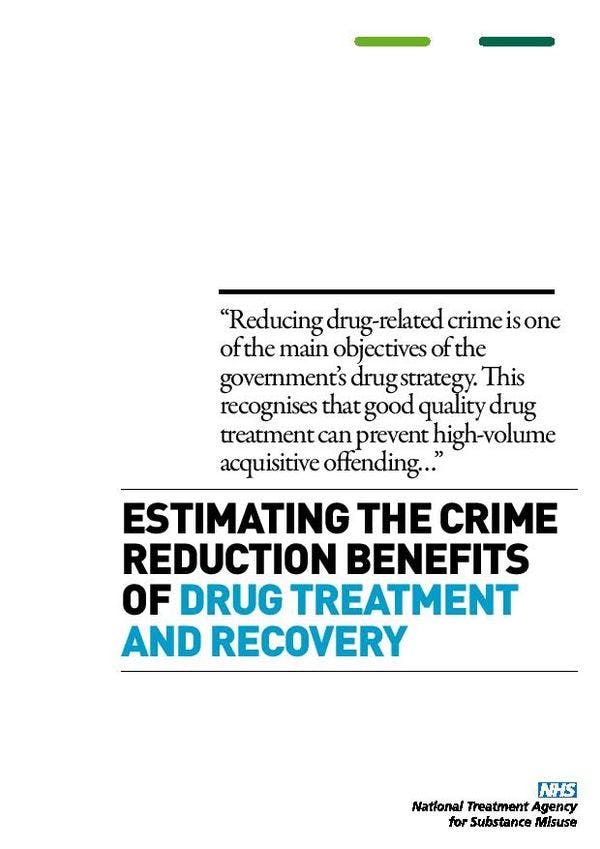Estimating the crime reduction benefits of drug treatment and recovery
Every £100 invested in drug treatment services prevents a crime being committed, according to a study released today. A report published by the NTA estimates that current drug treatment provision prevents 4.9 million crimes in England a year, with an estimated saving to society of £960 million in costs to the public, business, the criminal justice system and the NHS.
The findings in 'Estimating the Crime Reduction Benefits of Drug Treatment and Recovery' are based on statistics from the National Drug Treatment Monitoring System (NDTMS), conviction records from the Police National Computer, and self-reported offences data from the Drug Treatment Outcomes Research Study. The empirical analysis has been endorsed by the Home Office.
The report estimates that the average cost of crime for a dependent drug user would be £26,074 every year if they were not in treatment, and that treatment prevents 26 offences for every offender in effective treatment. The overall reduction in crime by 4.9 million a year translates into an estimated:
- 100,000 fewer burglaries and robberies, saving homes and businesses £605 million
- 75,000 fewer car thefts and break-ins, saving motorists and businesses £155 million
- 350,000 fewer acts of prostitution
- 1.1 million fewer shoplifting thefts, saving retailers and businesses £137 million
- 25,000 fewer bags snatched.
The report estimates that these benefits will accrue each year if funding for drug treatment continues at current levels. In addition, it estimates that the accumulated effect of more people sustaining recovery would prevent a further 4.1 million offences over the next nine years.
Central support for drug treatment in England is being maintained at £466.7m for 2012-13, although a recent report from the UK Drug Policy Commission warned that local authorities who supply additional local resources are under pressure.
Paul Hayes, NTA Chief Executive, said: "It is well-established that getting drug-dependent offenders into and through treatment cuts crime. Now we can confidently estimate how much that is worth to the taxpayer, to individuals and to society, in terms of the number of crimes reduced and money saved.
"When recovery from addiction is sustained, the benefits to society multiply, and with more users than ever completing treatment successfully and not returning, it makes sense to continue investing in evidence-based drug treatment locally."
Reducing drug-related crime is one of the objectives of the Government's Drug Strategy, as the Home Office estimates that between a third and a half of all acquisitive crimes are committed by heroin or crack cocaine addicts. The NTA report estimates that when not in treatment, every drug user commits an average of two crimes a week.
Keep up-to-date with drug policy developments by subscribing to the IDPC Monthly Alert.
